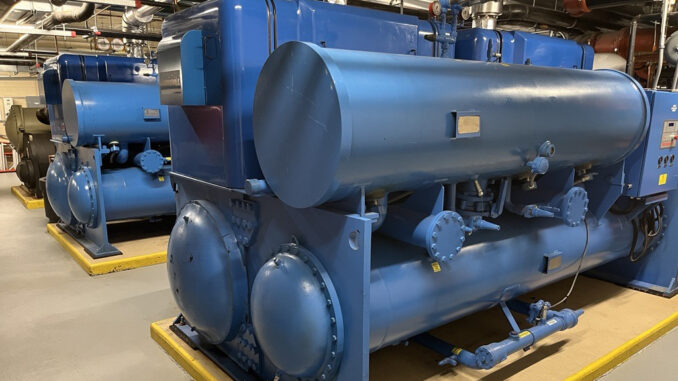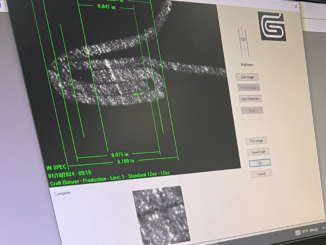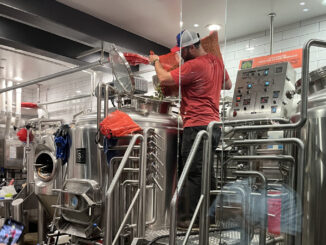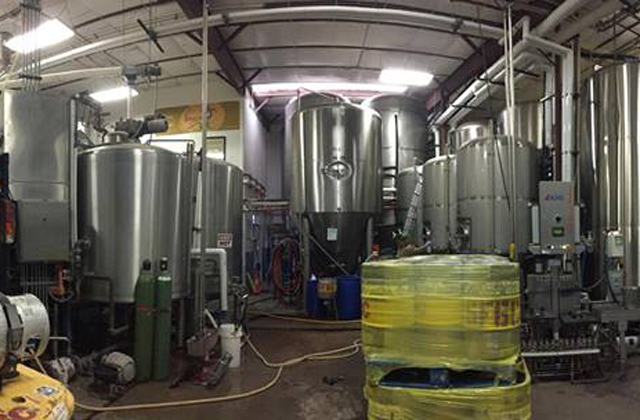
Breweries can find a 40-60% operational cost reduction utilizing this unique system for cooling. Powered by natural gas instead of electricity, engine-driven chillers provide cooling at a significantly lower cost than conventional electric chillers. They also reduce the facilities electricity need to just 2 kW per unit compared to 300 kW necessary to power one electric chiller of equivalent size. With double the efficiency of the distant powerplants, adding efficient use of natural gas lowers a brewery’s carbon emissions by 50%. Here’s how.
How it helps save costs
With the use of an engine, breweries swap for cheaper natural gas rather than being stuck with rising electric rates. In most of the US, natural gas is about a quarter of the price of electricity. Being powered by industrialized V8 engines, additional savings are generated when using the engine’s waste heat. This captured heat is created from the exhaust and engine jacket to create a free byproduct of hot water. In a brewery, this free hot water is often applied to performing wash downs, activating grain enzymes, preheating steam production and offsetting boiler operation. This method of heat recovery gives these chillers the efficiency boost above that of the central powerplants, lowering a facilities scope 2 emissions.
This simultaneous use of the engines’ shaft power and captured waste heat is considered ‘mechanical Combined Heat and Power (CHP)’ by the utilities and government agencies. As a result, these heat recovery chillers can qualify for many energy efficiency incentives offered by the state, federal, and utility. These incentives can reduce a facility’s upfront capital investment significantly and make the payback period for facility owners very short.
Currently, there is a 40% Investment Tax Credit (ITC), offered by the federal government, for all CHP-chillers as well as a substantial portion of the installation cost to implement them.
Lacking power?
As more and more businesses look to expand their processes, they are reaching the limit on the amount of power available by the utilities. For breweries, having a lack of or unreliable power could cripple your production and waste valuable product. If you find that the utility is stopping you from growing your operation, you are limited to only a few options: wait over a year for the utility company to bring more power, produce your own power, or incorporate natural gas cooling. By incorporating a natural gas cooling solution, you can skip waiting for the utility, take control of your operating costs while also preventing further electricity shortage, all with one solution. Producing your own power works in many cases but this may only be one piece of the puzzle if additional equipment for process cooling and heating is necessary as well.
Emission savings
As we move towards the future of decarbonization, combined heat and power (CHP) systems are a transitional pathway to zero carbon. Natural gas-fired chillers reduce carbon emissions by replacing the grid’s marginal fuel source which is almost always natural gas. When a brewery installs these chillers, it produces its own power and therefore, allows the natural gas usage at the power plants to ramp down by a commensurate amount. The clean sources, like solar, wind and arguably nuclear, are must-take sources and the next piece is the natural gas plant ramping up and down to cover the changes in demand. Because of this, when the engine-driven chiller turns on, it lowers the demand on the grid and offsets the natural gas power plant but without the T&D losses or the inefficiency of the central power plant. Instead, the efficiency is over twice as much thanks to the principles of combined heat and power.
About Tecogen: A beer’s best friend is the temperature it’s served at. Through the life of a beer, it needs cooling whether it’s being manufactured, stored, or served; it always needs the cold. At Tecogen, we know how to make something cold because we manufacture the equipment that produces cold. Since 1987, Tecogen began its line of engine-powered chillers and has since strived to create the lowest operating cost option. Now with a proven cooling solution to lower operating costs and avoid power constraints, Tecogen created the first hybrid chiller capable of running on natural gas or electricity. These hybrid chillers can be optimized to reduce emissions and operating costs significantly. While many others are struggling with rising energy costs, breweries with Tecogen are chilling with a substantial advantage. Contact us: www.tecogen.com | [email protected] | (351) 231-9395





Be the first to comment